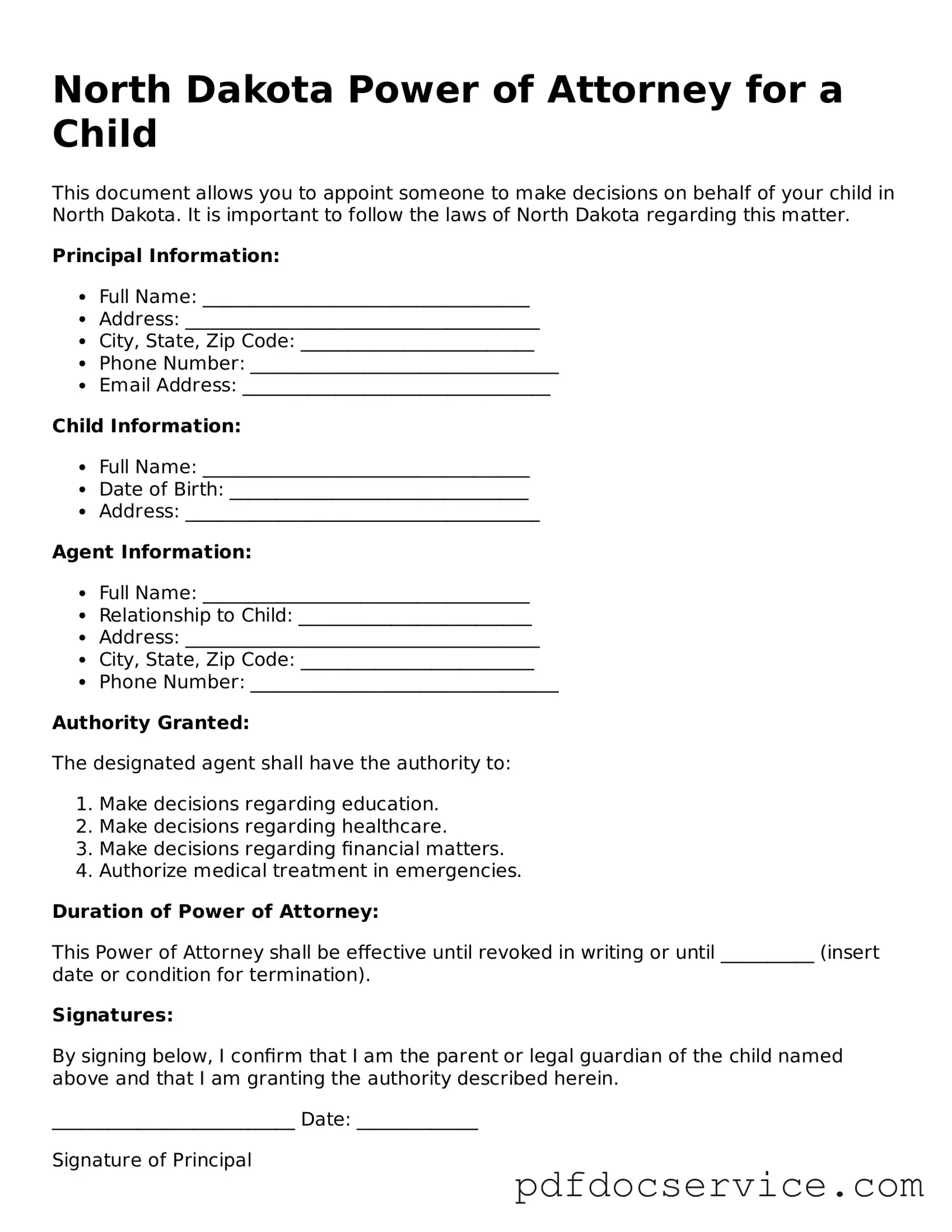What is a Power of Attorney for a Child in North Dakota?
A Power of Attorney for a Child is a legal document that allows a parent or legal guardian to appoint someone else to make decisions on behalf of their child. This can include decisions about medical care, education, and general welfare. It is particularly useful when a parent is unable to be present due to travel, work commitments, or other reasons.
Who can be appointed as an attorney-in-fact?
In North Dakota, the person you choose to act on your behalf, known as the attorney-in-fact, must be at least 18 years old and capable of making decisions. This person can be a relative, friend, or anyone you trust to act in the best interest of your child.
Do I need to have the Power of Attorney notarized?
Yes, in North Dakota, the Power of Attorney for a Child must be signed in the presence of a notary public. This step helps to verify the authenticity of the document and ensures that it is legally binding.
How long is the Power of Attorney valid?
The Power of Attorney for a Child remains in effect until the specified expiration date, if one is included in the document. If no expiration date is stated, it generally remains valid until the child reaches the age of majority, which is 18 years old in North Dakota, or until you revoke it.
Can I revoke the Power of Attorney once it is established?
Yes, you can revoke the Power of Attorney at any time. To do so, you should create a written notice of revocation and provide it to the attorney-in-fact and any relevant institutions, such as schools or medical facilities. This ensures that everyone is aware that the authority has been terminated.
What decisions can the attorney-in-fact make?
The attorney-in-fact can make a variety of decisions, including:
-
Medical decisions, such as consenting to treatment or procedures.
-
Educational decisions, including enrollment in schools or special programs.
-
Day-to-day care decisions, such as where the child lives and who they interact with.
However, the document can specify limitations on the authority granted, so it's important to clearly outline what decisions the attorney-in-fact can make.
While North Dakota does not require a specific form, it is recommended to use a standardized Power of Attorney for a Child form. This ensures that all necessary information is included and that the document meets legal requirements. You can often find templates online or through legal resources.
What if the child has special needs?
If the child has special needs, it is essential to consider their unique requirements when drafting the Power of Attorney. You may want to include specific provisions that address their medical, educational, and emotional needs. Consulting with a legal professional experienced in special needs planning can be beneficial.
Can the attorney-in-fact be held liable for their decisions?
Generally, the attorney-in-fact is expected to act in the best interest of the child. However, if they act outside the authority granted or fail to act responsibly, they may be held liable for any resulting harm. It’s crucial to choose someone trustworthy and responsible for this role.
How do I ensure the Power of Attorney is recognized?
To ensure that the Power of Attorney is recognized, provide copies to the attorney-in-fact, relevant family members, and institutions that may need to know about the arrangement, such as schools and healthcare providers. Keeping a signed original in a safe place is also advisable.

